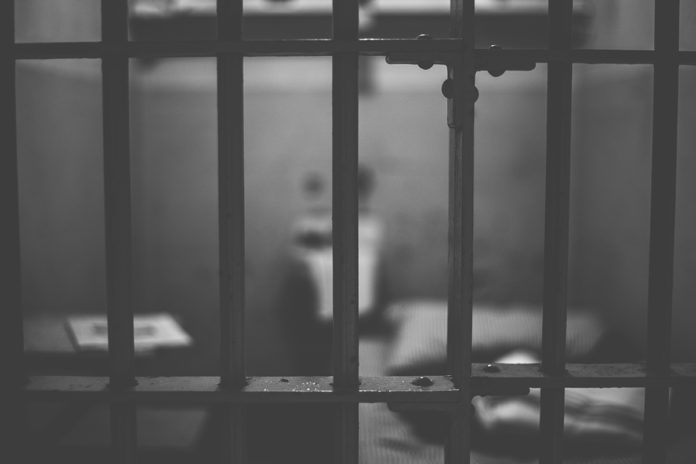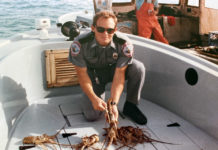
John (his name has been changed to protect his identity) is a fifth-generation Conch from Key West who just couldn’t stay clean. Since he was 19, he tried countless times to stay sober. But drug addiction had him in its grip, with three rehab stays and multiple scrapes with the law on his record.
“I used to be able to justify things by saying I was a functioning user,” John told Keys Weekly. “I used to get up and go to work. And that’s where I got the highest — at work. And as the years progressed, my addiction got worse and worse and worse. I made it okay with myself by saying, ‘Well, I’m not bothering anybody, so it’s okay.’”
Finally, in his mid-50s, John was brought before Judge Mark Jones in Key West.
“I was so beat up this last time. I was forced back. I was stealing for dope. I never expected to get that far in trouble,” he said. Jones offered him a deal: prison or a year’s stint in Monroe County’s Jail In-House Drug Abuse Treatment Program, also known as JIP.
JIP has been around since 1992 and operates within the Monroe County Detention Center. The program is funded through grants from Monroe County and Florida Department of Law Enforcement, and it is run by the Guidance/Care Center.
This spring, the Board of County Commissioners voted to accept a grant of $133,334 from FDLE with a 25% match requirement of $33,334 for the men’s rehab program, while the board approved a grant application for $55,199 from the FDLE for JIP’s female rehab program. The program helps 100 inmates per year. Each individual who enters the program receives individual counseling, group counseling, drug testing and case management.
John chose JIP but was a little skeptical that it could help — this was his second time around with the program. But when he did his intake interview with substance abuse counselor Kristin Flores, something felt different.
“I answered my intake, and an addict knows how to get around that,” he confessed. “But I thought, ‘I’m praying for a chance.’ I basically lost it and cried my eyes out and said, ‘I have to do something this time.’”
Flores took John under her wing.
“I buckled down with her. She helped me find out the real reason I was using,” he said. “I can’t say enough about her. She said the work was all done by me. But if she didn’t guide me, I wouldn’t be here today.”
As part of JIP, John attended two rehab classes with eight to 10 students a day — with topics such as relapse prevention and triggers — and one private counseling session a week. After JIP, John lived in a Key West halfway house and stayed in communication with Flores. He joined a 12-step program and now sponsors three men and helps them stay clean. John also has now changed professions and has gradually gathered together a staff of six at his workplace who are all in recovery.
“It’s been a heck of a long journey for me, and thanks to this program I feel like I found a missing piece of the puzzle. I just celebrated 32 months clean. I just turned 57. Since I was 19 years old, I haven’t had this much sobriety in my life,” he said.
But John admits that JIP gets a bad rap. “Guards say, ‘Oooo, they’re in the program again,’” he said. “Usually, whatever charges you have, you get a choice from the courts: The JIP program plus six months’ probation or three years in prison. So everyone jumps on the program.”
John said that it also doesn’t help that half those in the detention center are not part of the program, but drug users who are not trying to quit.
In the FDLE grant application for the JIP program, Monroe County staff said that “South Florida, including Monroe County and the Florida Keys, continues to have the unfortunate distinction of being designated as a high-intensity drug trafficking area and, as such, is a leading illicit drug importation area. This has increased the availability of illicit drugs in Monroe County resulting in drug abuse rates higher than both the state and national averages.”
Maureen Dunleavy, regional vice president for Guidance/Care Center, admitted that not everyone who attends JIP responds positively to the program.
“When you need treatment and you’re at a critical point in your life, you’re able to see it and get it. Some people get it, some don’t. Rock bottom is different for everyone,” she said. “Hopefully, if you’re ready, it’s an opportunity and you can take advantage of that. That’s a personal choice you can make. JIP has done amazing work and has really helped our community. You have access to treatment that in other parts of the country you don’t get. You’re just doing time.”
Meanwhile, John wants to spread the word to addicts in trouble in Monroe County that JIP works.
“I can’t say enough about JIP. This is important to me: that maybe someone will get something out of reading this story and say, ‘Let me give this a try.’ For a man I did a lot of crying. You have to grab a hold of that chance and spill your guts.”

























